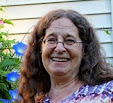In the Brahms biography the author points out that in his 34 years in Vienna, the center of the European musical universe, Brahms would have had 13 opportunities to hear Beethoven's Ninth Symphony performed by an orchestra. That works out to one every two and a half years. Mostly he became acquainted with great works of the past by reading the sheet music or by hearing his friends play simplified arrangements of these great works arranged for the piano or perhaps a string quartet.
Most people, of course, would have had no chances to hear a professional production of most contemporary music. An English music lover like Jane Austen, experienced "music" in the context of neighborly get togethers where people performed piano arrangements of famous works that had stood the test of time.
In Austen's day, Beethoven's Ninth hadn't been composed yet, of course, as it came out in 1824, but his sonatas would have been available in sheet music form in the Regency and his other Symphonies and concertos would have been known and possibly available in sheet music forms arranged for piano or piano and violin.
However, it took a while for the musical amateur to appreciate the works of his middle period. Even critics considered them "noise" and "nonsense" when they first heard them, as they were so different from the orderly arrangements of notes and the logical chord changes they were accustomed to hearing from beloved composers like Mozart, Haydn and Handel. Austen never have heard a note of Beethoven.
But it is the rarity of music in this period that fascinates me living as I do in a time when music is so omnipresent. My dad was born decades before the advent of radio and widespread marketing of recorded music He told me once that he still remembered the first time he heard a piano. He was almost six years old and the piano was being played in a department store.
It was a revelatory moment for him that left him standing transfixed, while his mother tried to tug him away and get on with her shopping. It was a moment he remembered all his life. He attended live concerts almost weekly throughout his later years and owned one of the first stereo phonographs so he could listen to his music at home. But recorded music never satisfied him the way live music did.
His experience of music was entirely different from that of anyone now alive. But it gives us a hint of what music might have been like for people in the Regency period. Hearing music was a relatively rare event--especially music that was well performed beyond the amateur level--and it was valued in a way we can't imagine and probably had a psychological impact beyond anything we can imagine, overwhelmed as we are in an environment that is so filled with music that we have lost our ability to marvel at it.
In the Regency period, if you wanted to listen to music when you were alone you could chose from any piece you could play on whatever instrument you owned--assuming those you lived with would put up with it. With an invalid mother, Austen must often have had to console herself with the memory of the pieces she liked rather than the actual sound which might have disturbed the invalid's sleep.
With this in mind, you can see what a valuable present Jane Fairfax's piano really was. Without it she would have had no access to music except when her betters invited her to a musical evening where she'd be at the mercy of the tastes of the other invitees.
The only other place she would hear music would be at a ball where a small group of musicians of varying ability would play dance music. Many people probably attended these balls because it was their only chance to hear even semi-professionals play.
To hear professional musicians play music often--and by often we mean that you might have heard a favorite piece played once every 30 months or so, you would have had to be well off. To hear what you wanted to hear more frequently you would have had to be a dukes or a nabob. Only they had the resources to bring famous European performers and composers to England where they would perform privately whatever they were instructed to play. The super-rich could also afford to commission the pieces to which their names are still affixed.
Austen's collection of sheet music gives us an idea of the kinds of music she valued. It includes " songs by Handel and Haydn and by English composers of the day, like Dibdin, Samuel Webbe the younger and Shield, plus folk songs popular ballads and comic songs, Italian songs, French songs and operatic selections, also instrumental pieces by Corelli, Handel, Gluck, Haydn, Pleyel, Cramer and John Christian Bach." This last quotation comes from a discussion about music in Austen's writings and life you can read HERE.
Here is a snippet of the kind of music Austen and other Regency music lovers would have heard at the orchestral recital that would be, perhaps, a once in a lifetime event:
Here's another, with good video of the small orchestra used for the popular Baroque pieces still popular in the early 19th century.
Here is a song by Charles Dibden that Austen might have heard sung by friends:


1 comment:
Thank you - how lovely the gift of these recordings!
Post a Comment